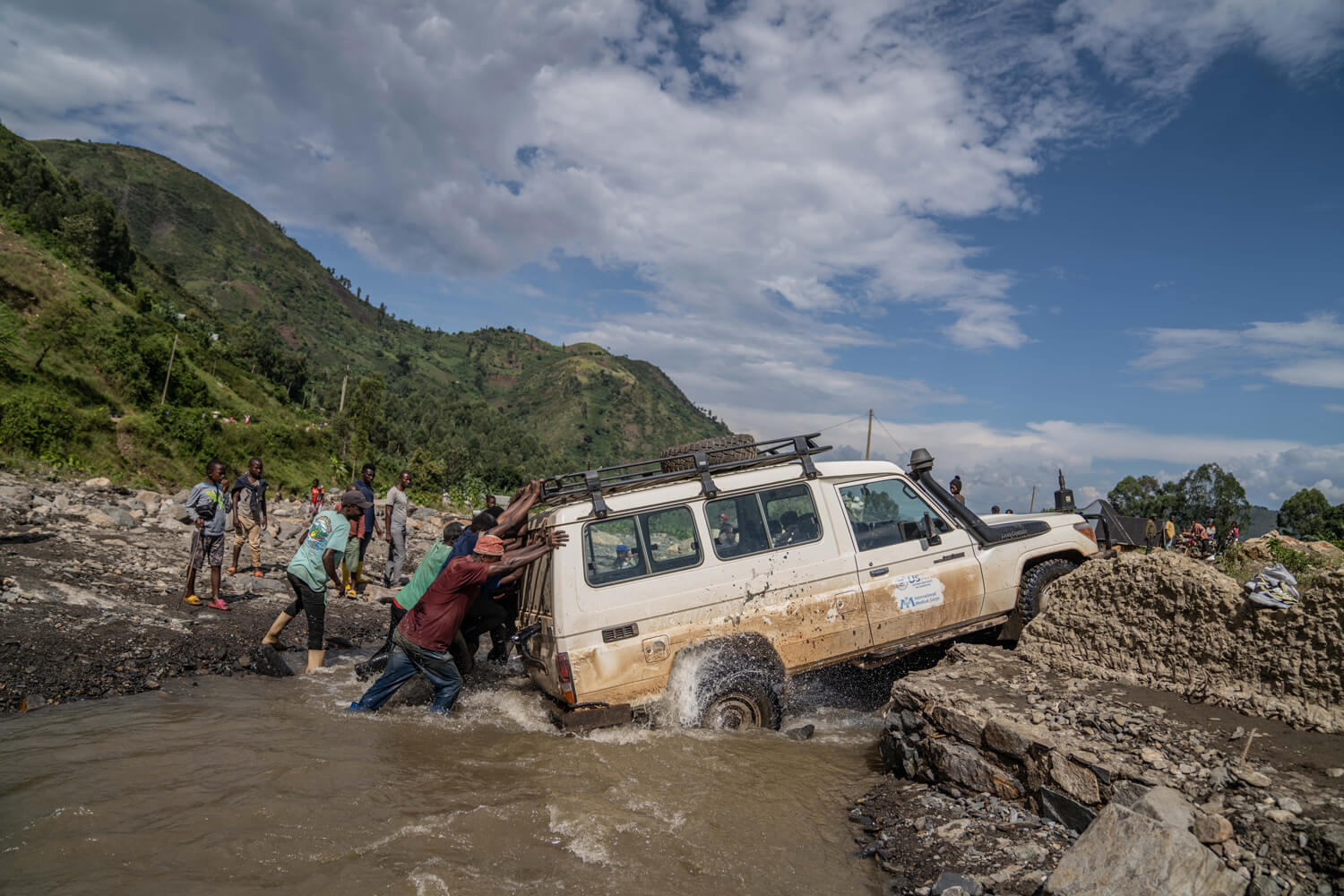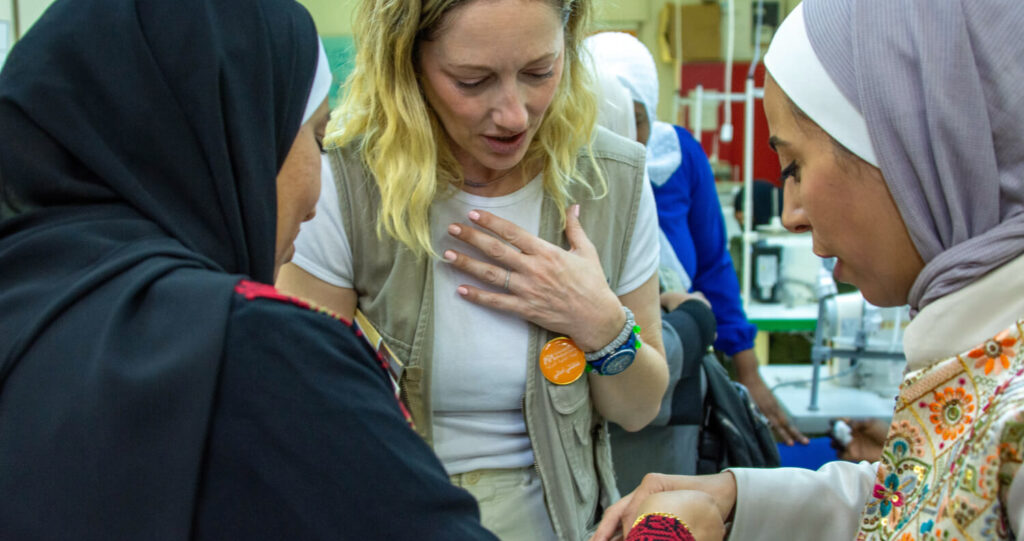Our Global Ambassadors Travel to Jordan
This month, International Medical Corps Global Ambassadors Judy Greer and Kevin Curry visited Azraq refugee camp in Jordan to see our lifesaving work there firsthand. Jordan hosts more than 650,000 Syrian refugees—roughly 9% of Jordan’s population. Azraq refugee camp is one of the places that has become “home” for some of these refugees.



During her time there, Judy—an award-winning actress with more than 150 film and TV credits—learned about the mental health services, child protection activities and services for women refugees that we provide. Kevin—who is a popular content creator focusing on cooking—learned multiple recipes from refugees living at the camp while introducing them to some of his own recipes, including Texas chili.


International Medical Corps has been providing services to Syrian refugees in Jordan for a decade.


We stand in solidarity with the millions of displaced people around the world who have been forced to leave their homes due to conflict, persecution or disaster. Thanks to your support, we will continue to provide access to refugees in Jordan—and beyond.



Treating Malnutrition in Gaza
To address skyrocketing malnutrition rates in Gaza, our team is working with partners to identify malnourished kids, provide them with treatment and ready-to-eat therapeutic food, and enrol them in follow-up care so they stay healthy.
True to our mission, we are training local community health workers and caregivers how to screen for malnourishment and treat affected children.




With 100 metric tons of therapeutic food and a goal of reaching 200,000 malnourished kids, we are committed to helping ensure a healthier future for the civilians of Gaza.


Helping Displaced People in Kharkiv
Kharkiv has been the target of recent Russian attacks on critical healthcare, energy and other infrastructure in Ukraine. An offensive that began in May has displaced some 25,000 people and killed dozens. Our team continues to respond quickly to this latest crisis.




In times of crisis, women and girls are often at greater risk of gender-based violence (GBV). That’s why our GBV team in Kharkiv is offering dignity kits, mental health support and information about related services available to displaced women and girls.
Bringing Relief to People Affected by Hurricane Beryl
Hurricane Beryl, the earliest Category 5 hurricane to occur in the Atlantic, tore a devastating path through the Caribbean, the Yucatan Peninsula and parts of the United States in early July, causing multiple deaths, millions of dollars in damage to crops and infrastructure, and widespread power outages. In response, we quickly sent emergency teams to both Jamaica and Texas.


In Jamaica, we are working with the Ministry of Health and other local partners to support health facilities with urgently needed supplies. And because of the potential for more frequent and intense hurricane activity in the Atlantic, we’re collaborating with local partners to provide training for healthcare centers, hospitals and affected communities, to strengthen local authorities’ ability to respond to sudden disasters.


Communities in Houston, Texas, are still reeling after the hurricane destroyed parts of the city and severely damaged the power grid. To meet immediate urgent needs, we are distributing critical relief supplies such as wound-care kits and nonperishable food items to clinics throughout the city.
Delivering Healthcare to Remote Areas in the DRC
As conflict intensifies in the Democratic Republic of the Congo, hundreds of thousands of people are fleeing areas plagued by violence. Since January 2024, violent clashes between rebel groups and armed forces have displaced more than 400,000 people in North Kivu. More than half of those are children seeking protection in Minova.

Our mobile medical units provide free access to primary and secondary healthcare services for displaced people and members of host communities—saving lives amid conflict.



Access to healthcare should not be determined by where you are born—everyone deserves access to lifesaving healthcare. With your support, we can continue to help.
Learn more about International Medical Corps
Follow International Medical Corps on Facebook, Twitter, Instagram, LinkedIn, TikTok, Threads and YouTube.
Are you a journalist looking for information?
International Medical Corps is a global first responder that delivers emergency medical and related services to those affected by conflict, disaster and disease, no matter where they are, no matter the conditions. We also train people in their communities, providing them with the skills they need to recover, chart their own path to self-reliance and become effective first responders themselves. Established in 1984 by volunteer doctors and nurses, we are a nonprofit with no religious or political affiliation, and now have more than 8,000 staff members around the world, 96% of whom are locally hired. Since our founding, we have operated in more than 80 countries, and have provided more than $4.2 billion in emergency relief and training to communities worldwide.
Our staff includes experts in emergency medicine, infectious disease, nutrition, mental health, maternal and infant health, gender-based violence prevention and treatment, training, and water, sanitation and hygiene, all within the humanitarian context.
To arrange an interview on or off the record, contact our Media Relations team at media@internationalmedicalcorps.org.
